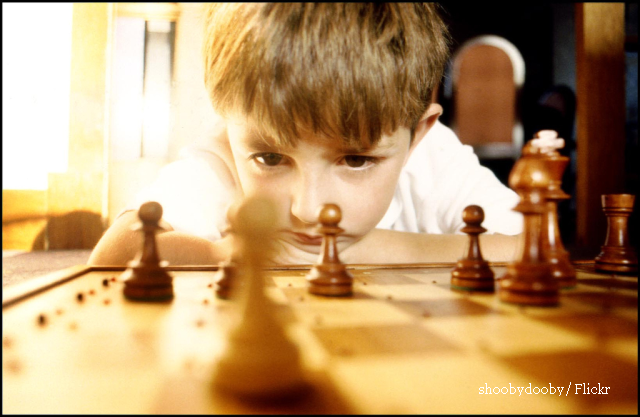Chess in School
Starting with the 2014-2015 school year, chess becomes an optional subject in Romanian school curricula.

România Internațional, 20.08.2014, 12:21
Starting with the 2014-2015 school year, chess becomes an optional subject in Romanian school curricula. As per the order issued by Education Minister Remus Pricopie, the subject will be called “Education through chess”, and will be taught in primary school. Therefore, schools in Romania will be able to introduce this optional course, covering a period of two years, for 1st to 4th graders. Here is Education Minister Remus Pricopie talking about the benefits of this decision.
“ There will be many benefits, and I can talk about them both as a teacher and as a parent to a child that plays chess. First of all, it enhances one’s ability to focus and teaches them how to be patient. You are supposed to sit 3, 4 even 5 hours in front of a chess board and face your opponent, and you have to be able to manage that. Then, it’s about team spirit. Those who do not play chess may think this is an individual game, but it’s not. The team is extremely important, from preparation to competition, and I believe this is extraordinary for the children who want to play chess. Research has also shown that chess improves school performance in general.”
Vladimir Danilov is General Secretary of the Romanian Chess Federation and trained as a chess player in Iasi, north-eastern Romania, which is an example of best practices with regard to introducing chess in school.
“Chess was introduced in schools in 1986, though not necessarily as a subject on the curriculum. It was then that the first chess class was set up. After 1990, chess has been introduced in all schools and kindergartens, usually in the after-school system. There are some 3 thousand pupils in Iasi who play chess. Some of them have become professional players, and also became winners of Olympiads in other subjects. In 2000, chess became an official subject at the Bogdan Petriceicu Hasdeu school, in various forms: “Computer Chess”, “Chess and Math”, depending on the specialization of the chess teacher. So there are 600 children in primary school who have chess classes every week, between one and four hours.”
According to a protocol signed recently between the Ministry of National Education and the Romanian Chess Federation, the next stage is to decide which will be the schools where chess gets taught, and who will be the teachers. Here is Minister Remus Pricopie again:
“ The first problem that we must solve is to find the right teachers. As chess has not been part of school curricula for long, obviously we did not have teachers trained to do that. Under this agreement with the Chess Federation, any teacher will be able to teach chess, provided they get a certificate from the Chess Federation. Therefore, the teaching module is covered by the initial training of the teacher, irrespective of the subject the teacher specializes in — mathematics, biology, chemistry, etc. — and the chess component is assured and certified by the National Chess Federation. This is how we can start the project, and, obviously, in the coming years we will focus on training teachers specializing in chess. The second very important thing is the equipment needed for 500 schools, in order to make teaching chess possible. We are talking about a set of 10 chess games, a demonstration table, manuals, and a teacher’s guide. The decision we made together with the Chess Federation is that these 500 sets should benefit schools in the rural areas, because town and city schools usually have sports clubs.”
Stefan is a high-school student and plays professional chess, but he is also very good at mathematics. His achievements confirm the positive effects of chess playing:
“ Chess helps the development of the brain and helps us think in a certain way. It’s helpful not only in school, but also in every-day life. We learn how to make choices and how to be more self-confident.”
Here is now Victor, another high-school student, winner of medals at national chess championships, but also of awards at other school Olympiads.
“What matters most in a math or IT competition is how you manage to control your emotions. I myself got very good results at national math competitions as well.”
Lucian Vasilescu is a physician with a hospital in Bucharest, and when he has the time, he participates in chess tournaments. Here he is, talking about how chess has influenced his school performance, and also his career.
“ I started playing chess when I was in the first grade, and chess has been pure pleasure to me ever since, all throughout grade school, high-school, university, and also now. At a certain point in time I used to play chess at a very high level, as a professional. Obviously, that helped me develop certain skills, such as perseverance, tenacity, the desire to win, but also team work. I’ve been to many competitions, hosted by beautiful places both in the country and across the world. The fact that at the age of 50 I can still play against some of the best players in Romania means a lot to me. So, I can say I am looking forward to retiring, in order to be able to dedicate more time to chess.”






























